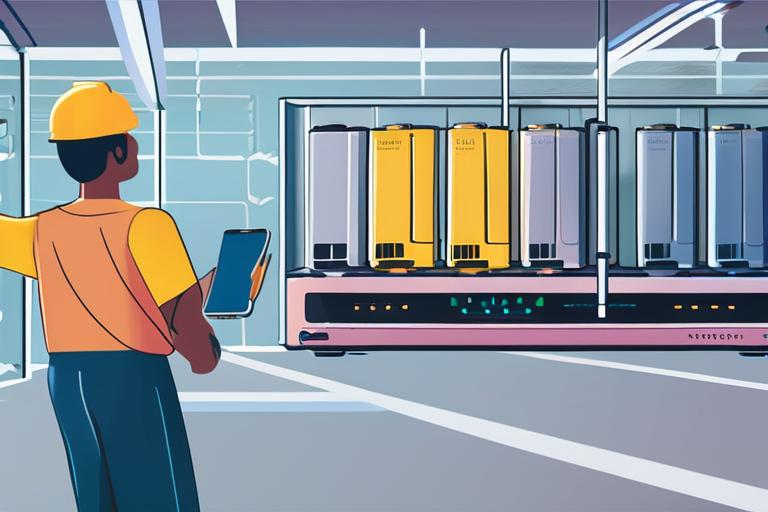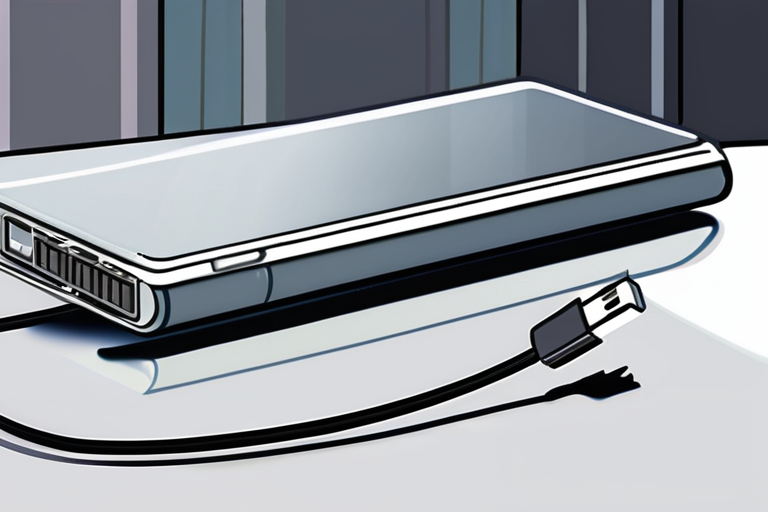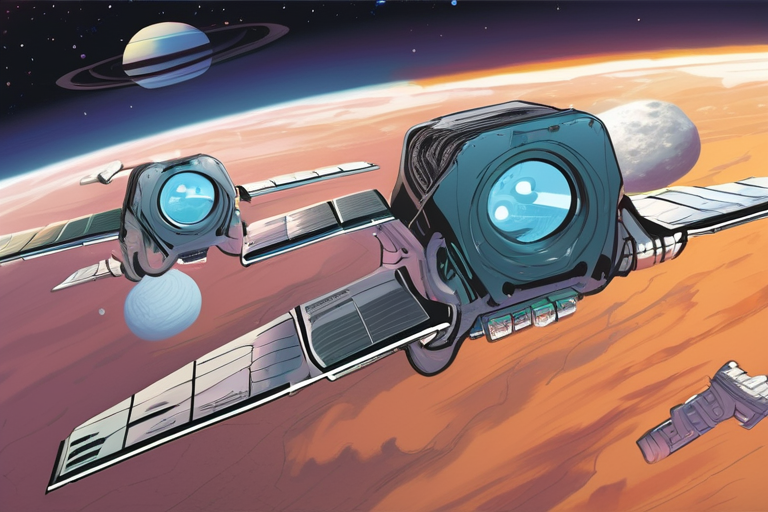The AI Data Centre Router Revolution: Can Cisco's New Hero Tackle the Industry's Biggest Bottleneck?
Imagine a world where artificial intelligence (AI) is the backbone of our digital lives, but its growth is being held back by a seemingly insurmountable challenge. Welcome to the world of data centre interconnect technology, where the industry's biggest bottleneck is waiting to be tackled.
In this high-stakes game of technological one-upmanship, networking giant Cisco has just entered the fray with its latest innovation: the 8223 routing system. This behemoth of a router boasts an astonishing 51.2 terabit per second (Tbps) fixed speed, making it the industry's first purpose-built interconnect technology specifically designed to link data centres running AI workloads.
But what exactly is this bottleneck that Cisco is trying to tackle? In simple terms, as AI continues to grow in importance, so does its need for massive amounts of data to be processed and transmitted across multiple facilities. However, the current infrastructure simply can't keep up with the demand. It's like trying to fill a bucket with water while the hole at the bottom is getting bigger by the second.
The Three-Way Battle for Scale-Across Supremacy
Cisco isn't alone in recognising this opportunity. In mid-August, Broadcom fired the first salvo with its Jericho 4 StrataDNX switch-router chips, which offered a whopping 51.2 Tbps of aggregate bandwidth backed by HBM memory for deep packet buffering to manage congestion.
Just two weeks later, Nvidia unveiled its Spectrum-XGS scale-across network – a cheeky name given that Broadcom's Trident and Tomahawk switch ASICs belong to the StrataXGS family. Nvidia secured CoreWeave as its anchor customer, but it remains to be seen whether this will give them an edge in the market.
The Human Side of AI: What Does This Mean for Society?
As we delve deeper into the world of data centre interconnect technology, it's essential to remember that this is not just a battle between tech giants – it has far-reaching implications for society as a whole. With AI becoming increasingly integral to our daily lives, from healthcare and finance to transportation and education, the need for efficient and scalable infrastructure is more pressing than ever.
Imagine a world where AI can help doctors diagnose diseases faster and more accurately, or where self-driving cars can navigate complex city streets with ease. But what happens when these systems are unable to communicate effectively due to bottlenecks in data transmission?
The Silicon One P200 Chip: Cisco's Answer to the Challenge
At the heart of Cisco's 8223 routing system lies the new Silicon One P200 chip – a custom-designed ASIC that represents the company's answer to the industry's biggest challenge. With its unprecedented speed and scalability, this chip is designed to handle the massive amounts of data generated by AI workloads.
But what makes it so special? According to Cisco, the Silicon One P200 chip boasts an incredible 51.2 Tbps fixed speed, making it the fastest router in the industry. But that's not all – its custom-designed architecture also enables it to scale seamlessly across multiple facilities, eliminating the need for costly and complex upgrades.
Multiple Perspectives: What Do Industry Experts Think?
We spoke with several industry experts to get their take on Cisco's latest innovation. "The 8223 routing system is a game-changer," says Dr. Maria Rodriguez, a leading expert in AI infrastructure. "Its custom-designed architecture and unprecedented speed make it the perfect solution for data centre interconnect technology."
But not everyone is convinced. "While Cisco's new router is certainly impressive, we need to see how it performs in real-world scenarios," says John Lee, CTO of CoreWeave. "Only then can we determine whether it truly lives up to its promise."
Conclusion: The Future of AI Data Centre Interconnect Technology
As the industry's biggest bottleneck continues to grow, one thing is clear – the future of data centre interconnect technology will be shaped by the likes of Cisco, Broadcom, and Nvidia. With their innovative solutions and custom-designed architectures, these companies are pushing the boundaries of what's possible.
But as we look to the future, it's essential to remember that this is not just a battle between tech giants – it has far-reaching implications for society as a whole. Will Cisco's 8223 routing system be the hero that tackles the industry's biggest bottleneck? Only time will tell. But one thing is certain – the world of AI data centre interconnect technology is about to get a whole lot more interesting.
*Based on reporting by Artificialintelligence-news.*



 Hoppi
Hoppi
 Hoppi
Hoppi

 Hoppi
Hoppi

 Hoppi
Hoppi

 Hoppi
Hoppi

 Hoppi
Hoppi










